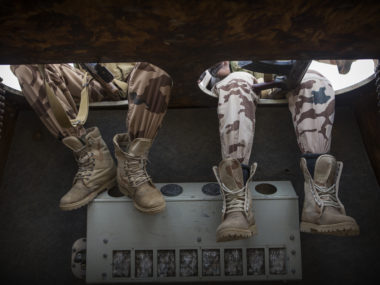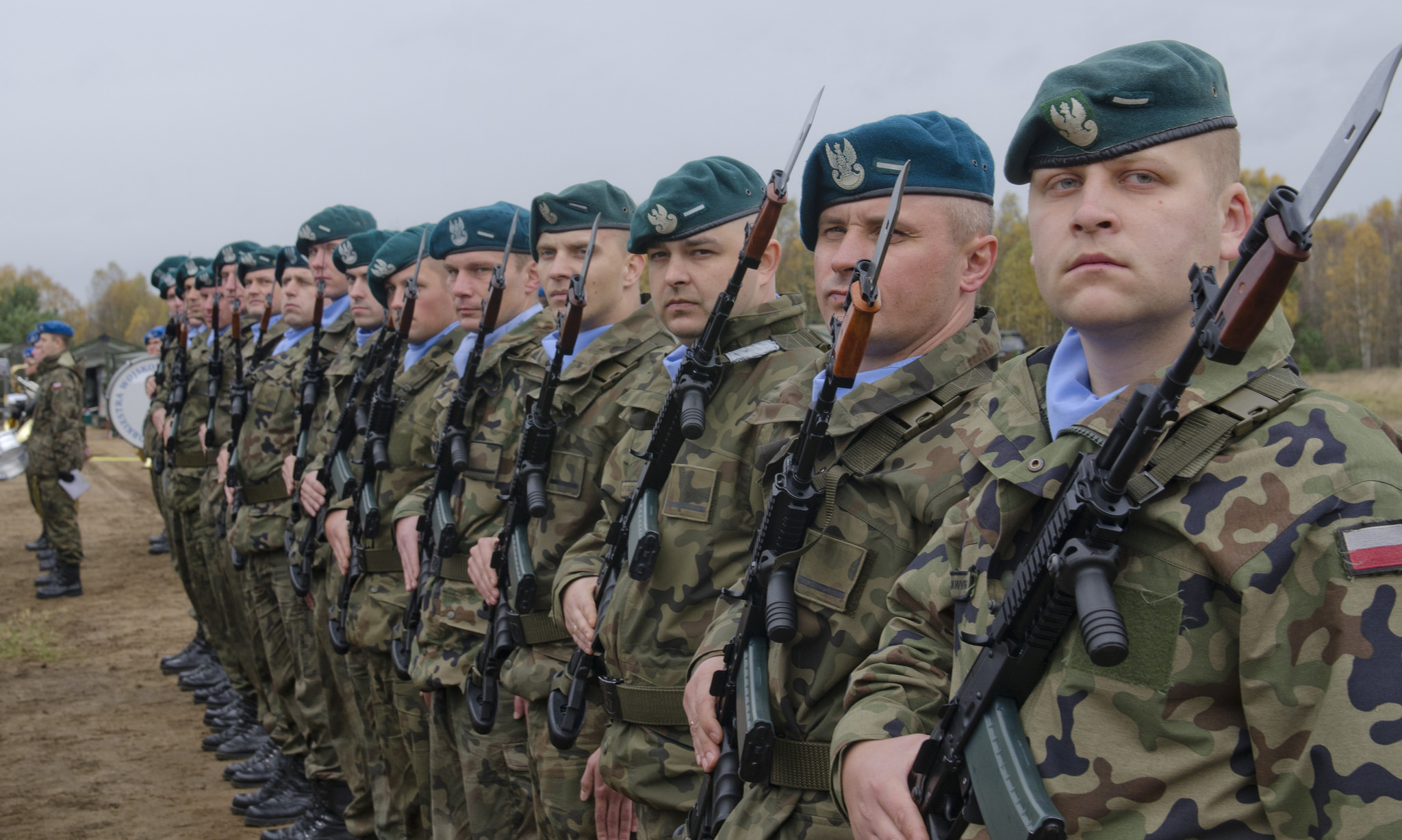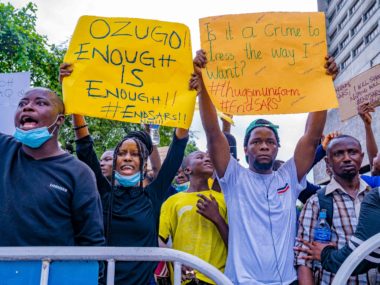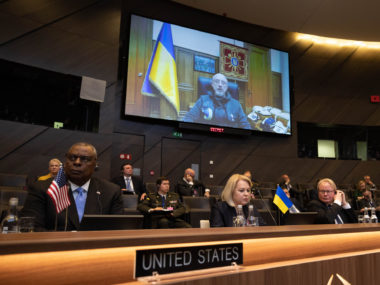By Christian Davenport and Ben Appel
It is said that those who ignore history are doomed repeat prior mistakes. In that spirit, we drew upon some unpublished research we are undertaking on the termination of high-repression spells (i.e., sustained applications of coercive activity used by political authorities against those under their territorial jurisdiction) in order to provide some reasonable conclusions about what taking action in Syria might achieve. This is not to say that the discussion taking place has been unreasonable. Indeed, on this blog alone there have been many insights provided. Rather, we wanted to take the opportunity to bring some data to bear that has previously not been considered.
Initially, we were interested in trying to understand how genocides and politicides ended, but quickly realized that we were generally interested in the topic of how interventions of different types influenced government coercive behavior writ large. Deviating from the existing quantitative literature on state repression and human rights violation but conceptually in line with some qualitative as well as historical work on repressive behavior and quantitative work on civil war, we decided that it made the most sense to examine “spells” of repression. We conceive of these spells as consecutive years of high-levels of state repression (i.e. 3 or greater based on the Political Terror Scale, Gibney et al. [2008]).[1]
Why adopt this approach? Well, several reasons.
First, citizens, human rights organizations, journalists and diverse governments seem interested in eliminating such behavior despite disagreeing on what to call them. The idea of “Never Again” was founded on this basic idea of trying to reduce the likelihood of large-scale human rights violations occurring or stopping those underway, but it became largely mired in legal discussions of what cases did and did not fit. Indeed, in an effort to avoid such debates some conflict scholars began using the phrases “civilian targeting” and “(mass) atrocities”. Second, the reasons why some large-scale human rights violations become labeled as genocide, politicide, democide, atrocities or what have you is a separate point. Large numbers of individuals are dying while these determinations are being made and in line with the work of David Scheffer, we see no reason to focus on this subset exclusively. Dealing with all cases where individuals are dying is a worthwhile effort in and of itself. Third, while much of the quantitative field of conflict and violence has been directed toward the investigation of repressive events (i.e., rates of occurrence) much of the work has been directed toward levels (i.e., cumulations of rates). When one reads about historical cases, as well as the situations that most individuals care about, these are generally conceived us as what we and others refer to as “spells”. For example, the “Red Scare” — a spell of US repression directed against communism and socialism. COINTELPRO — a spell of US repression directed against a wide variety of political challenges from the left and right. Martial law under Marcos in the Philippines or in Poland during the Cold War spells. Bloody Sunday — well, that was an event, but it is better understood as part of spell. In the social movement field, these sustained interactions are labeled as conflict “cycles” — same basic point. Fourth, much of the discussion of places like Syria are taken from the perspective of civil war and armed conflict, but we were curious what things would look like if we viewed them from the perspective of state repression/human rights violation/crimes against humanity (i.e., taking a more state-centered focus). Researchers have long discussed the impact of intervention on civil war, but have barely scratched the surface on efforts to stop state atrocities (see Kathman and Wood or Krain for exceptions).
So, how many spells are there?
In our data, there are 214 high-repression spells from 1976 to 2003. The spells range from one year to 27 years with an average duration of five years.
Further, consistent with President Obama’s potential use of force against the Syrian regime, we are interested in the influence of anti-government interventions on the duration and termination of these spells. To do this, we used the Pearson and Baumann (1993) and Kisangani and Pickering (2008) data on international military interventions (IMI) to identify anti-government interventions. The authors define IMI as “the movement of regular troops or forces (airborne, seaborne, shelling, etc.) of one country inside another, in the context of some political issue or dispute” (Pearson and Baumann 1993, 1). Interventions are considered anti-government when they support rebels or opposition groups, or oppose the government. In our data, there are 62 anti-government interventions across the 214 high-repression spells.
What lessons can we draw for the current Syrian case? Well, the prospects are not good.
Anti-government interventions rarely lead to the termination of high-repression. Among the 62, only 10 are even associated with spell termination. Thus, a little less than 16% of anti-government interventions contributed to the end of high-repression. Additionally, successful cases appear to be very different from Syria. Most importantly, only two took place in the context of civil war and seven involved combat operations, or sustained activity of troops on the ground. There are also no cases of airpower alone leading to the termination of these spells. Their durations also average nearly five months in length, further suggesting that limited airstrikes are not sufficient to end the spells.
US interventions in Grenada and Panama provide illustrative examples of anti-government interventions leading the termination of high-repression spells. In both cases, the US invaded another country with a large military force that resulted in the overthrow of the current regime. Thus, anti-government interventions can be successful under some circumstances. These case, however, are far different from what President Obama is proposing to do in Syria.
Our conclusion? Well, interventions to stop state repressive efforts – especially those during a civil war — do not tend to reduce state repressive efforts. Don’t intervene, Mr. President. What does stop repressive spells? Well, we hate to do this but wait for our paper.
[1] As conceived, spells terminate when there at least two years without high repression. We do this because may states have several years of high levels of repression, one year without it, and then back to high-repression. The two-year rule is consistent with the concept of “episodes” from the Uppsala Conflict data.
Citations
Gibney, M., L. Cornett, and R. Wood. 2008. Political Terror Scale 1976-2008. Date retrieved from the Political Terror Scale Website .
Pearson, F., and R. Baumann. 1993. “International Military Intervention, 1946-1988.” Inter-University Consortium for Political and Social Research, Data Collection No 6035, University of Michigan, Ann Arbor.
Kisangani, E., and J. Pickering. 2008. “International Military Intervention, 1989-2005.” Inter-University Consortium for Political and Social Research, Data Collection No 21282, University of Michigan, Ann Arbor.







8 comments
Wha? Seriously? You’re going to write a blog post about research on a topic of urgent public importance and end it with a “Wait for the paper”?!? Then why write the post at all?
still trying to get my head around the domain of blogging. we wanted to jump in on the specific point of interventions and provide some context. the larger issue of what should/could be done is a slightly different matter. our work on the interventions is also a bit clearer. the implications of what we are finding about what should be done is a bit harder for us to get our heads around. did not mean to leave you hanging. we did come out a bit sooner than we actually intended. more coming soon. promise.
Thanks for the reply, Christian. Apparently, I misread that last bit as intimating that you had worked out some ideas on that topic but weren’t going to share them here. Your choice makes a lot more sense to me if your concern is that the could/should part of the project simply isn’t done yet. Then I think you’re even prudent to withhold those conclusions. In the future, though, it’d probably be easier on readers like me if you were either more explicit about the state of the unfinished work or just didn’t bring up the stuff you’re not ready to describe.
point well taken. still a newbie in the social media in some respects. caught by old habits of not releasing stuff until crazily coded, analyzed, vetted, reviewed and discussed. others (not to be named) seem to have less of a problem pulling the trigger. somewhere between shining my bullets and looking at the bazooka in the corner.
Great post (and great research project)!
Questions, though, regarding your conclusion (“Don’t intervene, Mr. President”)… [caveat – I’m still chewing this over, so the ideas are not fully formed] — The proposed intervention vs. Assad may not be likely to end a high repression spell, but it might make it harder to carry out, or minimize the damage the regime can inflict. Think of the possibility of taking out the Nazi’s ability to transport people to concentration camps, which was considered but rejected in part because it would not end the spell. Had that happened, it probably would have not ended the repressive spell, but would have made it much harder to continue on that scale, at least in the short- to medium-term. I wonder whether that’s closer to what’s being thought about here. The Obama Administration does not seem to be thinking of how to end the spell of repression (at least, that’s not what they’re saying in public), but may be thinking about how to take chemical weapons off the table and make it much harder to inflict mass casualties as quickly and easily. Thoughts?
changing tactics has been something that researchers have considered and that is something very important to address. if we can save lives through shifting repressive tactics from one form that is very lethal to another, less lethal form, then that is worth doing. at the same time, we wanted to give some attention to the idea of terminating repression – at least that which is relatively severe. perhaps this is naive but i do not think that we give enough attention to this. we should endeavor to end large-scale coercive behavior and part of our conversation should be about doing that. shifting tactics from chemical weapons to disappearances, torture or some other less obvious form of repression should not be our only conversation. your prompt and friendly amendment is well taken. thanks for that.
No offense is intended, but I think this might be missing a critical detail. The suggestion of U.S. intervention since August 21st has been based around deterring the use of chemical weapons. Given how relatively rare the use of a specific type of weapon such as chemical weapons has been (I can only think up four or five cases that I know of), I’m not sure how reliably we can say whether or not an intervention would deter the use of chemical weapons in the future*.
*Particularly since it would presumably involve at least some destruction of those weapons which would mean that the politics wouldn’t matter much if the weapons don’t exist to be used.
no offense intended at all. part of the larger conversation regarding syria has also been how do we stop the government from engaging in large-scale repressive behavior writ large, not simply their use of particular tactics. we get to the discussion we are having right now because of the use of an especially egregious weapon. we would contend, however, that the larger objective is to stop human rights violations that do damage to significant amounts of the population. now, truth be told, the repression literature has not always been good about capturing some of these nuances. for example, the political terror scale aggregates diverse tactics together and thus the data we employ would not capture the shift that you mention from chemical weapons to some other type of weapon. the cingranelli and richards database would be a bit better at capturing tactical shifts but would not be ideal. i, for one, would not like to pick and choose among diverse horrible ways of injuring and killing people. in a sense our research is like: what impact do specific policies have on all the different ways that governments could injure and kill large numbers of their citizens. hope this helps clarify our interests.